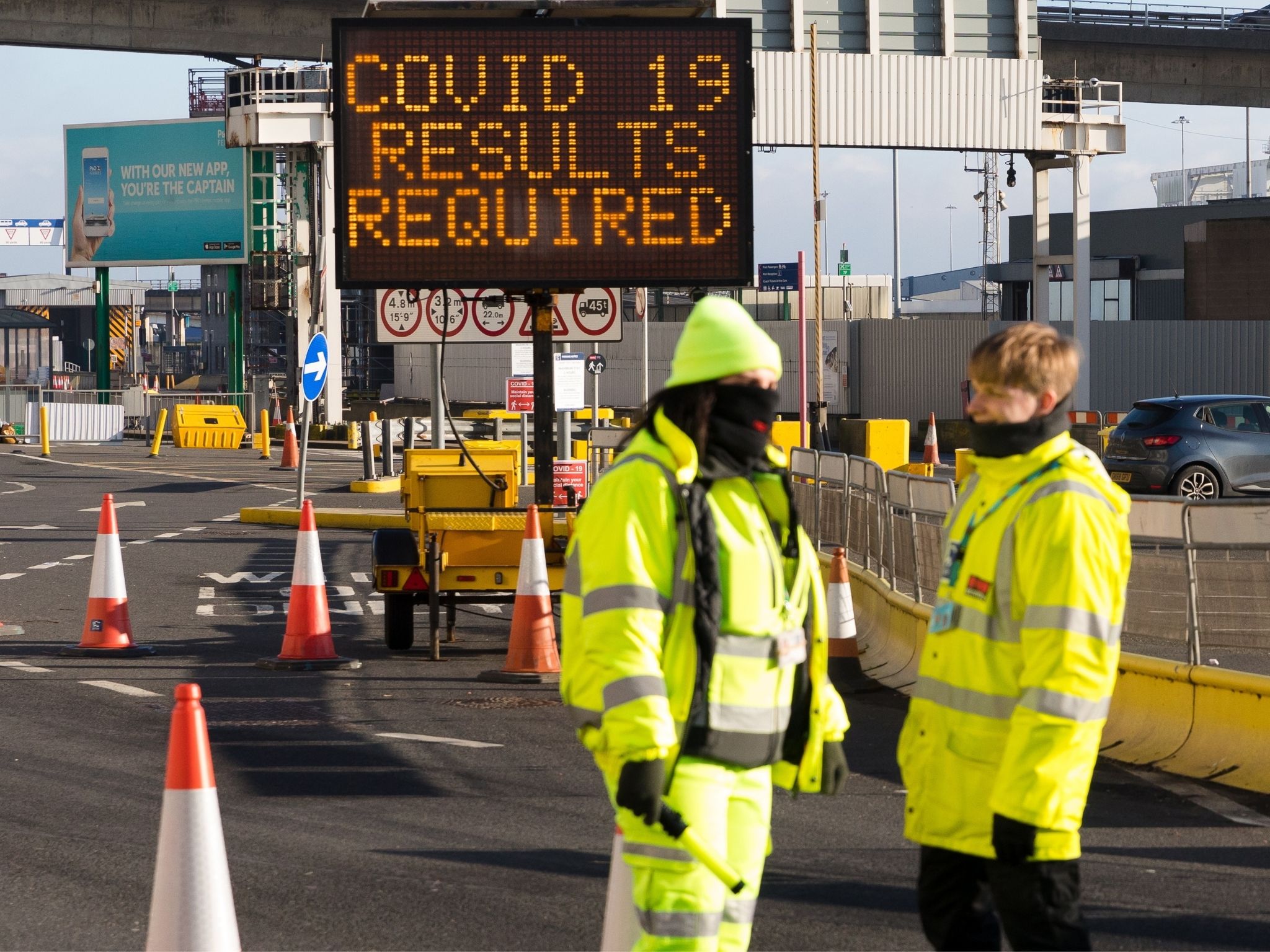We should be clear whether trade disruption is being caused by Brexit or by coronavirus
The French government is threatening to insist on slow coronavirus tests for cross-channel hauliers, writes John Rentoul


Andrew Adonis, the Labour peer and passionate anti-Brexiteer, calls Boris Johnson’s agreement with the EU the “trade reduction treaty”, because its unusual feature is that it makes trade harder – and since it came into effect on 1 January, this has seemed to be an accurate description.
A live eel exporter who voted to leave the EU was interviewed on TV saying he didn’t realise that it would mean he couldn’t export his eels any more. Small business owners have said that the extra paperwork means it’s not worth sending orders to the continent. DPD, the parcel courier, suspended deliveries to the EU for five days while it sorted out its admin.
Many of these things were known about before the end of the transition period, and yet many businesses were still unprepared for the new rules. Some of the problems of border controls have been that goods have arrived with the wrong paperwork, or because the carrier didn’t realise that they needed any paperwork. Similarly, the music industry warned that the new rules might prevent British bands touring the continent, but that has become the subject of headlines only after the deal was done.
In all of this, though, it must be remembered that there are different categories of border friction. Some of it is a feature of Brexit and makes trade more difficult (or, in the case of live eels, uneconomic); some of it is temporary disruption as people get used to new procedures; but some of it is nothing to do with Brexit.
The problems at Dover and Folkestone over Christmas were caused by the French government wanting lorry drivers to be tested for coronavirus before crossing, in response to the spread of the new variant in the UK. Yesterday’s headlines were about the French authorities threatening to require the slow but more accurate PCR tests rather than the 30-minute lateral flow tests. If that happens it will cause serious disruption, because PCR tests take at least a few hours (if the samples are tested on site), and usually longer. But that would not be because of Brexit. It seems unlikely that the attitude of the French government is influenced by our departure from the EU: just compare British public opinion towards closing our airports to arrivals from Brazil and South Africa, which have also reported new variants of the virus.
Undoubtedly, there is an economic cost of Brexit – primarily of new bureaucracy, as Ben Chu explained yesterday. But it should not be confused with the temporary cost of adjusting to the new rules, or with the disruption caused by coronavirus.
And it is only fair to list the possible benefits of Brexit to set against its long-term cost. Leaving aside abstractions such as sovereignty, it is worth pointing out that the UK’s early start in approving vaccines would have been difficult if we had still been a member of the European Medicines Agency – there was nothing in EU law to prevent an EU member making its own decision on vaccines, but in practice the moral pressure of EU solidarity meant that none of them did.

Join our commenting forum
Join thought-provoking conversations, follow other Independent readers and see their replies
Comments